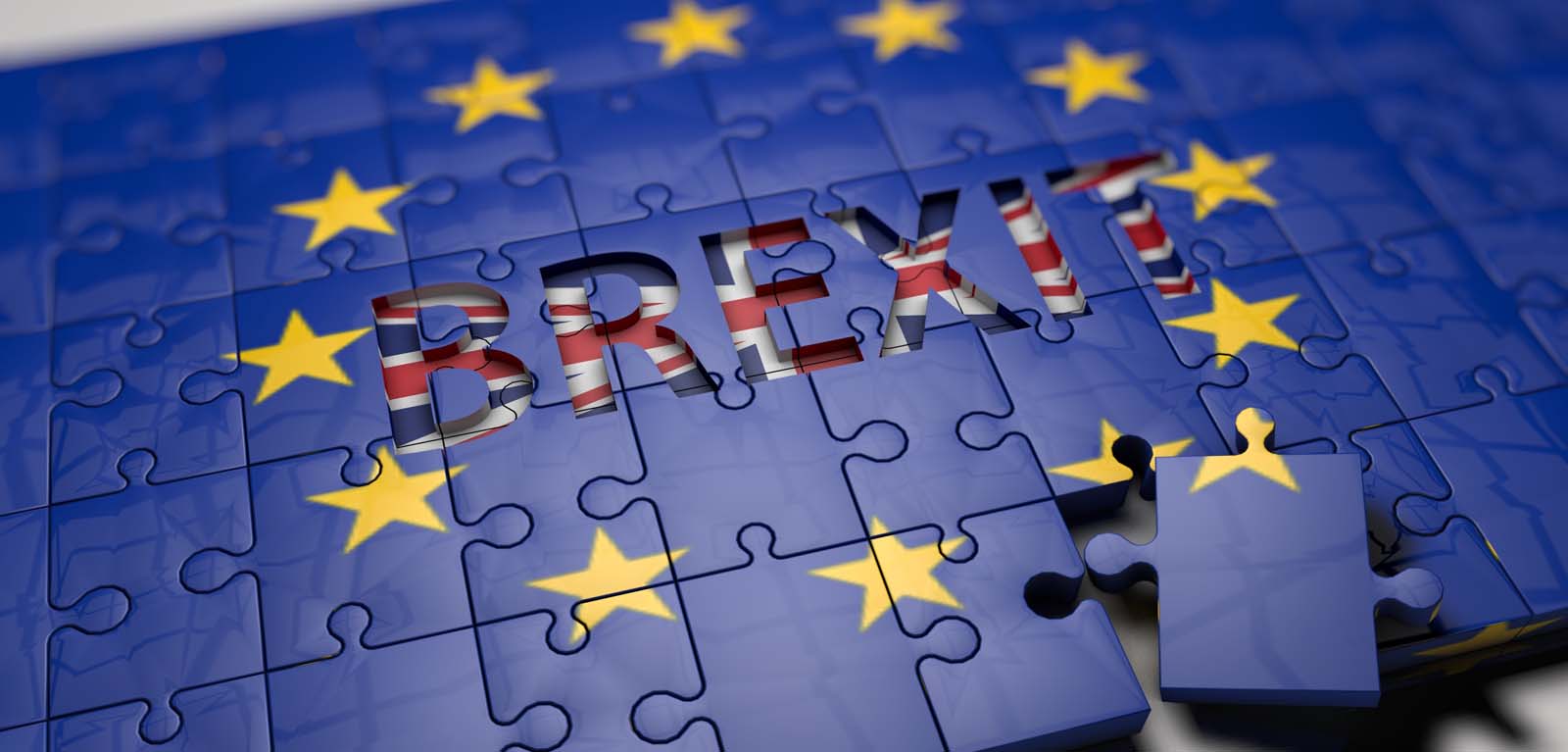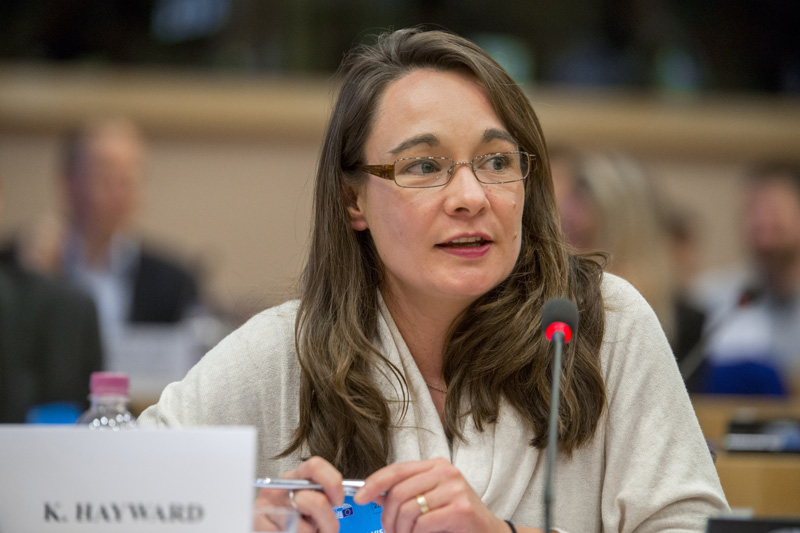A growing majority in Northern Ireland think Brexit has increased the likelihood of a united Ireland
The 2021 results of Northern Ireland’s leading social attitudes survey are released today (Thursday 26 May) by ARK – a joint initiative between Queen’s University Belfast and Ulster University.

It shows rising support for Irish unification, nationalist identification and for the NI Protocol compared to 2020.
The NI Life & Times (NILT) Survey also shows 48 per cent support for NI remaining in the Union, but this has been declining since 2016.
Unionist and nationalist identities have become stronger, and the proportion of those who are ‘neither’ unionist nor nationalist has decreased since 2018.
These results are analysed in a report released today: ‘Political attitudes in NI after Brexit and under the Protocol’, co-authored by Professor Katy Hayward, Dr Milena Komarova and Ben Rosher of Queen’s University Belfast.
Key points
-
Belfast/Good Friday Agreement is seen as the best basis for governing Northern Ireland, with only 6 per cent expressing absolute opposition to it.
-
There has been an increase in reporting of nationalist identities (from 19 per cent in 2020 to 26 per cent in 2021).
-
Nearly half of respondents (48 per cent) believe that the long-term policy for Northern Ireland should be to remain part of the UK (down from 54 per cent in 2020).
-
One third (34 per cent) state they would vote for a united Ireland tomorrow.
-
63 per cent of respondents believe that a united Ireland is more likely after Brexit (a rise of five percentage points on 2020).
-
The plurality of unionists (47 per cent) and majority of nationalists (83 per cent) and those who are ‘neither’ unionist nor nationalist (67 per cent) believe that this is the case.
-
There has been a sharp rise in unionists saying Brexit has made them less in favour of a united Ireland – from 11 per cent in 2019 to 32 per cent in 2021.
-
The proportion who think the Protocol is ‘on balance a good thing’ has more than doubled to 33 per cent (15 per cent in 2020). 33 per cent think it a ‘mixed bag’ while 21 per cent think it ‘on balance a bad thing’.
-
Different identity groups have different opinions on the Protocol. The plurality of unionists think it on balance bad for NI (44 per cent) although 40 per cent think it ‘a mixed bag’. The plurality of ‘neithers’ think it is ‘a mixed bag’ (41 per cent). A large majority of nationalists think that it is on balance good (69 per cent).
-
Contrary to the Legacy and Reconciliation Bill currently under consideration by the UK Parliament, only 29 per cent support an ending of Troubles-related investigations and prosecutions.
-
There is majority support for progress in full implementation of the 1998 Agreement. 62 per cent want to see a Bill of Rights for Northern Ireland and 59 per cent want to see the re-establishment of the Civic Forum.
The report covers four main themes:
Belfast/Good Friday Agreement
Support for the Belfast/Good Friday Agreement remains strong in Northern Ireland (65 per cent), with only six per cent wanting to see it gone altogether.
In something of a boost for Alliance Party demands, 59 per cent want to see key votes in the Assembly passed on the basis of a weighted majority (not necessarily with a cross-community requirement). Only 19 per cent support the current rules for the use of Petition of Concern to block legislation in the Assembly.
Political identities
An exclusively Irish (i.e., ‘Irish not British’) identity is now held by the largest proportion of the population (26 per cent, up seven percentage points on 2020), compared to 21 per cent holding an exclusively British (‘British not Irish’) identity (slightly lower than in 2020).
Those who self-identify as ‘neither’ unionist nor nationalist remain the largest group in Northern Ireland. However, the proportion of this group has shrunk since 2019, and now stands at 37 per cent. There has also been a slight drop in the reporting of unionist identities (from 35 to 32 per cent), and a significant increase in those holding nationalist identities (from 19 to 26 per cent) compared to 2020.
Constitutional status
The proportion of respondents who believe the UK will exist in its current form in 20 years’ time is equal to that believing that there will be a united Ireland in the same timeframe (just under four in ten).
A plurality of respondents (48 per cent) continues to believe that the long-term policy should be for Northern Ireland to remain part of the UK. This is six percentage points lower than in 2020. At the same time, support for a united Ireland as a long-term policy has increased by four percentage points (30 per cent).
Brexit and the Protocol
Awareness of, and support for, the Protocol on Ireland/Northern Ireland has increased markedly since 2020. 65 per cent claim knowledge of it. 37 per cent of respondents feel that Brexit has made them more in favour of a united Ireland (73 per cent of nationalists and 37 per cent of neithers). There has been a steep rise in the proportion of unionists saying that Brexit makes them less in favour of Irish unity (32 per cent compared to 11 per cent in 2019).
Commenting on the report findings, Katy Hayward, Professor of Political Sociology Queen’s and Senior Fellow, UK in a Changing Europe, said: “If the NI Assembly election of 5 May was a defining moment, it only compounded the political flux that has troubled Northern Ireland since the Brexit referendum. The NI Life and Times Survey offers a unique insight into how the local population is responding to the realisation that things won’t and can’t be the same again. The differing expectations and concerns reflected in this data will no doubt prove testing for our democratic institutions as well as for our politicians in the months and years to come.”
The results of the report will be presented on Thursday 26 May by Paula Devine (co-director of ARK), Ben Rosher, Professor Katy Hayward, and Professor Sir John Curtice.
Featured Expert

Media
Media inquiries to s.devlin@qub.ac.uk